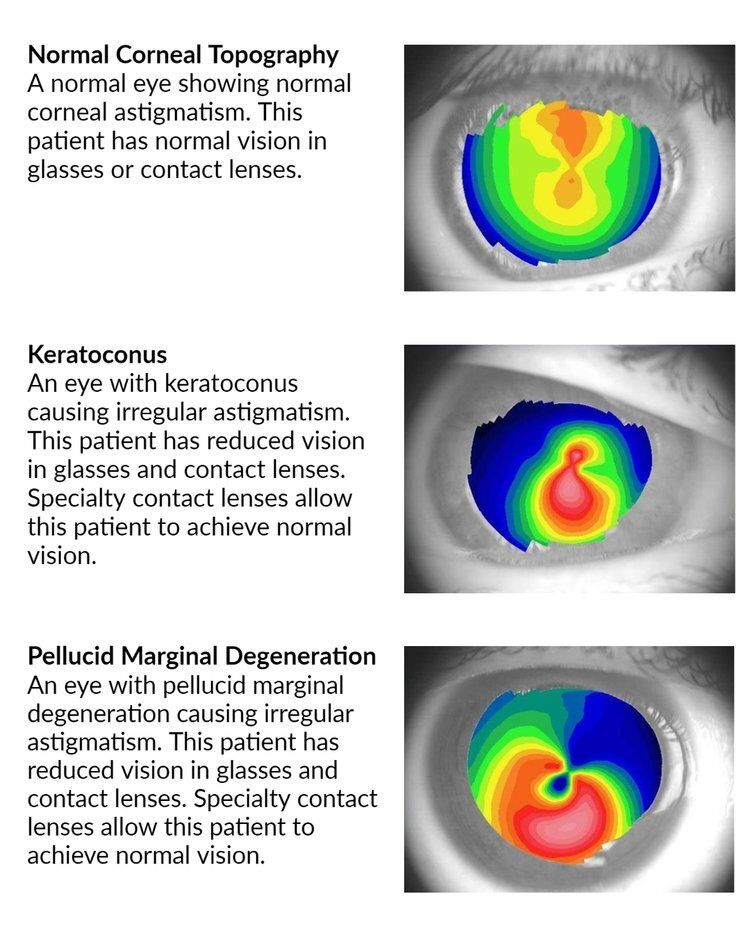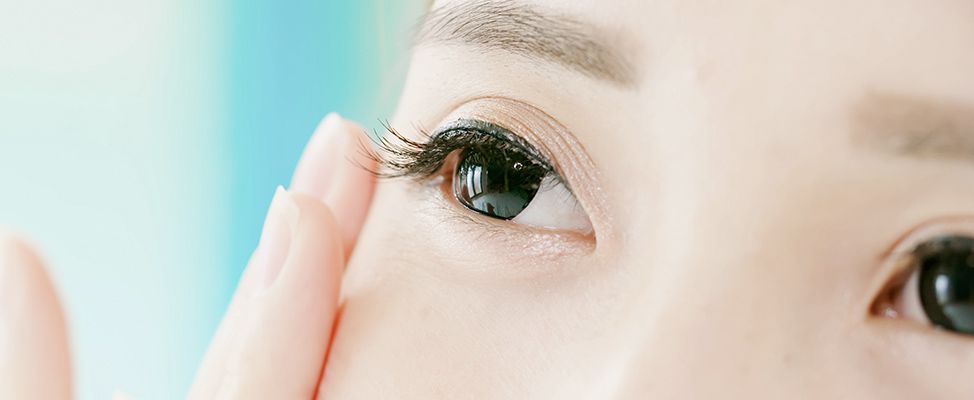What Is Keratoconus?
Keratoconus is a disease of the cornea that causes the cornea to become thinner over time. As the cornea becomes thinner, it changes shape and begins to protrude outward in a cone shape. The cone-shaped cornea results in symptoms of blurred vision, light sensitivity, and increased glare. Keratoconus usually affects both eyes, but it may be worse in one eye compared to the other eye.
What Are The Symptoms Of Keratoconus?
Early keratoconus may present without symptoms. Symptoms of keratoconus may include:
Blurred vision
Distorted vision
Light sensitivity
Increase glare
Contact lenses falling off eyes
Frequent changes in glasses and contact lens prescriptions

How Is Keratoconus Detected?
Keratoconus is detected by your eye doctor using the curvature readings of the front of the eye. Your eye doctor may also use a topographer to further evaluate the shape of the cornea. Genetic testing is now available to test for your risk of keratoconus. Genetic testing for keratoconus is strongly recommended to individuals that have a family history of keratoconus.
How Is Keratoconus Treated?
Treatment for keratoconus depends on the severity of the condition and how quickly the condition is progressing for each eye. For many people, early stages of keratoconus can be treated with prescription glasses or soft contact lenses. As keratoconus progresses, the cornea becomes scarred and distorted making it difficult to fully correct vision with prescription glasses and soft contact lenses.
Corneal Cross-Linking – Corneal cross-linking is the newest treatment option for patients with keratoconus. Corneal cross-linking in a procedure that helps to slow the progression of keratoconus by making the cells of the cornea more stable.
Corneal Transplant – Severe keratoconus causes extremely distorted and blurry vision that cannot be improved with prescription glasses or contact lenses. When vision cannot be improved with glasses and/or contact lenses then a corneal transplant may be required to improve vision.
Keratoconus And Contact Lenses
Contact lenses have become a great option for patients with keratoconus when they are no longer able to comfortably wear prescription glasses.
Soft Contact Lenses – Soft contact lenses may be useful for patients in the early stages of keratoconus. As keratoconus progresses, the cornea may become too distorted for a soft contact lens to fit comfortably. Additionally, fitting a contact lens for keratoconus may require high amounts of astigmatism correction that are not easily available in soft contact lenses. Keratoconus patients that wear soft contact lenses tend to complain that their vision never seems perfect or that the lenses move around too much and fall off their eyes.
Gas-Permeable Contact Lenses – When soft contact lenses can no longer work for a patient that has keratoconus, gas-permeable contact lenses may be recommended to improve vision. Gas-permeable contact lenses are custom-made to fit the shape of the cornea, therefore these lenses tend to fit the eye better compared to soft contact lenses. Additionally, gas-permeable contact lenses can be designed to included higher prescriptions that are not available in soft contact lenses.
Hybrid Contact Lenses – Hybrid contact lenses are a combination of soft and gas-permeable contact lenses that are used for keratoconus.
Scleral Contact Lenses – Scleral contact lenses are a large type of gas-permeable contact lens. These lenses are used when the cornea becomes too irregular for soft or gas-permeable contact lenses. Soft and gas-permeable contacts lenses rest on top of the eye and the cornea whereas scleral contact lenses vault over top of the cornea. Scleral lenses do not touch the cornea like other contact lenses. By vaulting over the cornea, scleral contact lenses are able to ignore the irregular shape to the cornea to improve vision.










